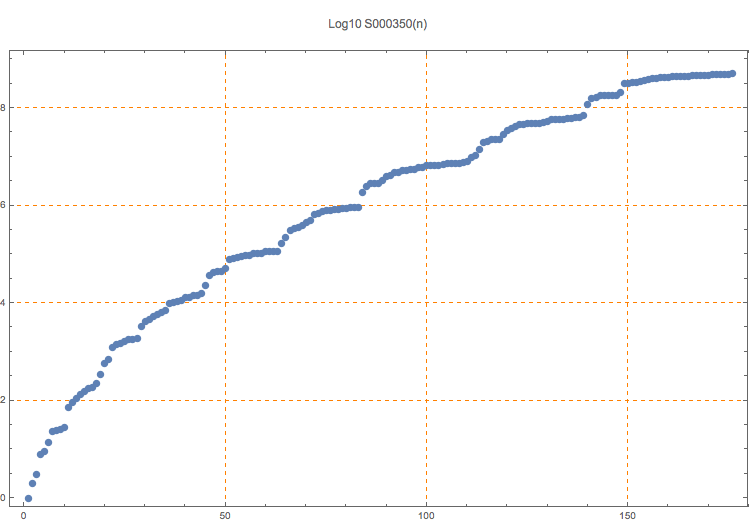Numbers n such that the n-th triangular number n*(n+1)/2 is a palindrome in base 8.
1, 2, 3, 8, 9, 14, 23, 24, 25, 28, 71, 90, 110, 132, 155, 178, 183, 227, 350, 585, 693, 1252, 1389, 1463, 1607, 1788, 1820, 1852, 3275, 4247, 4662, 5418, 5889, 6497, 7057, 9684, 10114, 10530, 11154, 13030, 13257, 14211, 14563, 15669, 22481, 37449, 42291
1
Base 8 appears to produce the most palindromes. It appears to be an infinite sequence because a triangular palindromic base 8 number consisting of just 0s and 7s can be found. A large example is the base 8 number 7070707070000000000000000000000707070707, which is the triangular number formed from n = 1537228672093301418. See the base 8 numbers in S000358.
T. D. Noe, Plot of 176 terms
T. D. Noe, Table of 176 terms
Maciej Ulas, On certain diophantine equations related to triangular and tetrahedral numbers, arXiv 0811.2477 (Nov 15 2008)
Eric W. Weisstein, MathWorld: Triangular Number
(Mma) ff[base_, len_] := Module[{n = 0, t = {}, tri, d}, While[Length[t] < len, n++; tri = n*(n + 1)/2; d = IntegerDigits[tri, base]; If[d == Reverse[d], AppendTo[t, n]]]; t]; ff[8, 40]
Cf. A003098, A008509 (base 10), S000344-S000351 (bases 2-9), S000358.
nonn,base,hard
T. D. Noe, Nov 18 2014
